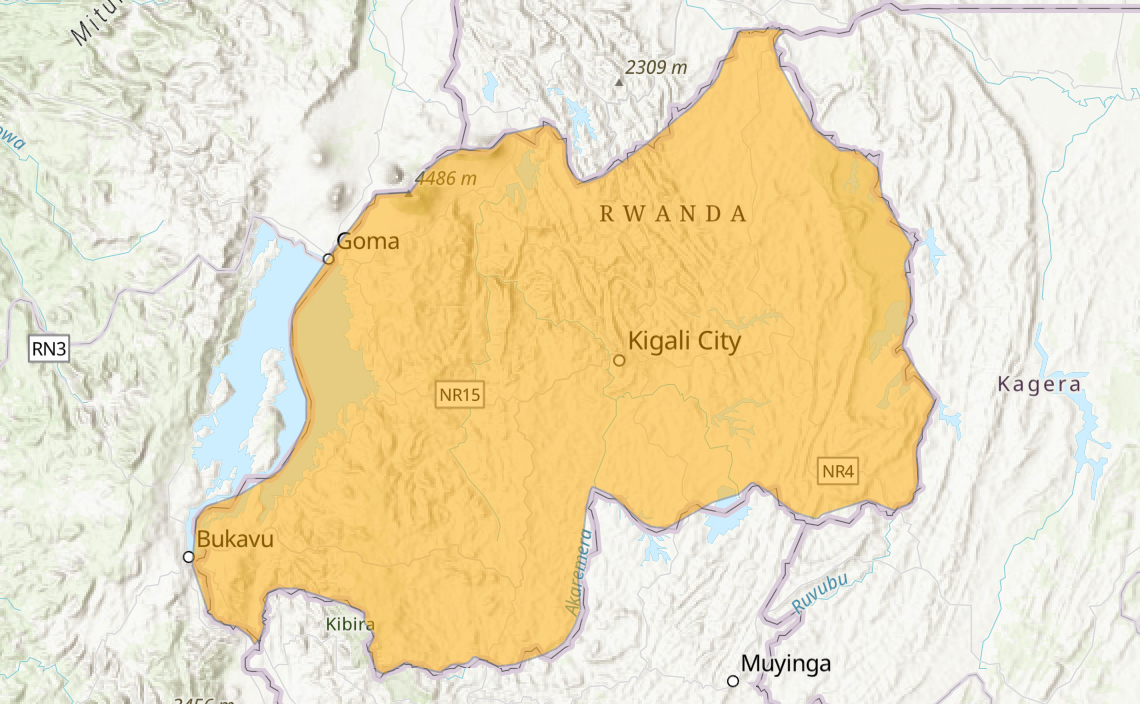Following the armed conflict and genocide that occurred in Rwanda in 1994, great efforts were required at both the national and international level to maintain peaceful relations in the country and to collect and process weapons and ammunition used during the conflict. Since then, the political and military situation in Rwanda has become increasingly stable. There are currently systems in place to deal with the weapons and ammunition that remain in the country to ensure that levels of diversion remain low.1 Rwanda is involved in an armed conflict against the Democratic Republic of Congo in Kivu and provides support to Mozambique and Central African Republic to fight against rebel forces in these countries.2
The African Union; the Regional Centre on Small Arms in the Great Lakes Region, the Horn of Africa and Bordering States (RECSA); the Bonn International Centre for Conflict Studies (BICC); and the Multinational Small Arms and Ammunition Group (MSAG) are working on the ground to support the through-life management of ammunition, in collaboration with the Ministry of Defence of Rwanda. Efforts have included promoting regional dialogues on physical security and stockpile management practices, providing weapons and ammunition management training for police and military forces, and strengthening national legislation and guidelines on small arms control to prevent the diversion and illicit trafficking of arms.3
1 US Congressional Research Service, Rwanda: In Brief (Washington, DC: US Congressional Research Service, 2021), https://sgp.fas.org/crs/row/R44402.pdf.
2 "Rwanda," Rule of Law in Armed Conflicts Project (RULAC), Geneva Academy of International Humanitarian Law and Human Rights, updated February 15, 2023. https://www.rulac.org/browse/countries/rwanda#collapse1accord.
3 “Ammunition Management Activity Platform (A-MAP),” GICHD, 2022, https://a-map.gichd.org.
Launch the country dashboard
Further information
Accidental explosions
Since the Small Arms Survey began collecting data in 1979, no accidental explosions have been reported in Rwanda.
Source: “Unplanned Explosions at Munitions Sites (UEMS) Database,” Small Arms Survey, updated December 15, 2021, https://smallarmssurvey.org/database/unplanned-explosions-munitions-sites-uems.
Cases of diversion
Insufficient information on cases of diversion in Rwanda.
Disposal
To further enhance safe and secure ammunition management, the following need has been identified for Rwanda:
- Capacity development for the destruction of surplus stockpiles.
Source: Rwanda, National Report on the Implementation of the Programme of Action on Small Arms and Light Weapons (PoA) and the International Tracing Instrument (ITI) (New York: Permanent Mission of Rwanda to the UN, 2022), https://unoda-poa.s3.amazonaws.com/reports/RWA-English-1180-SUBMITTED.pdf.



